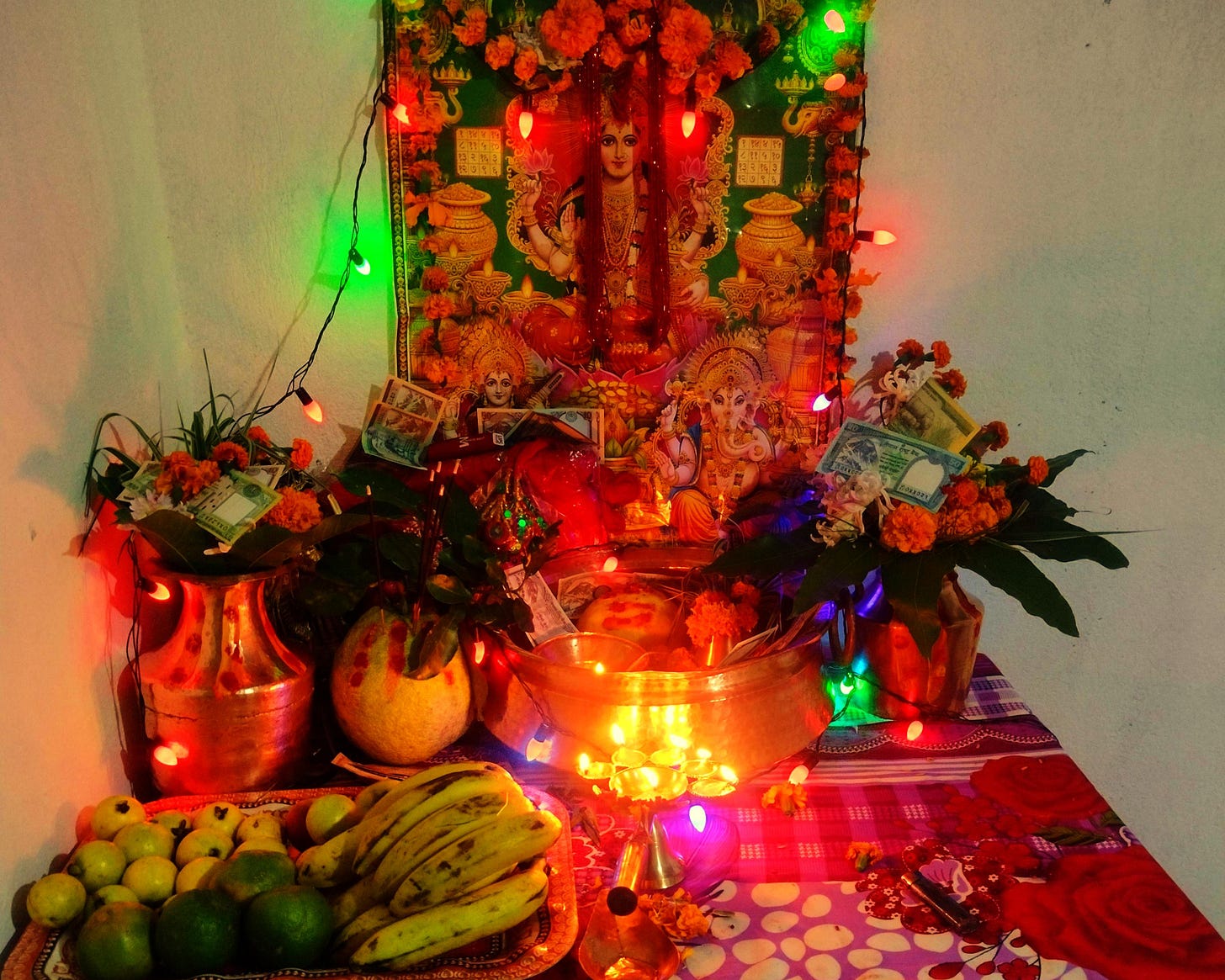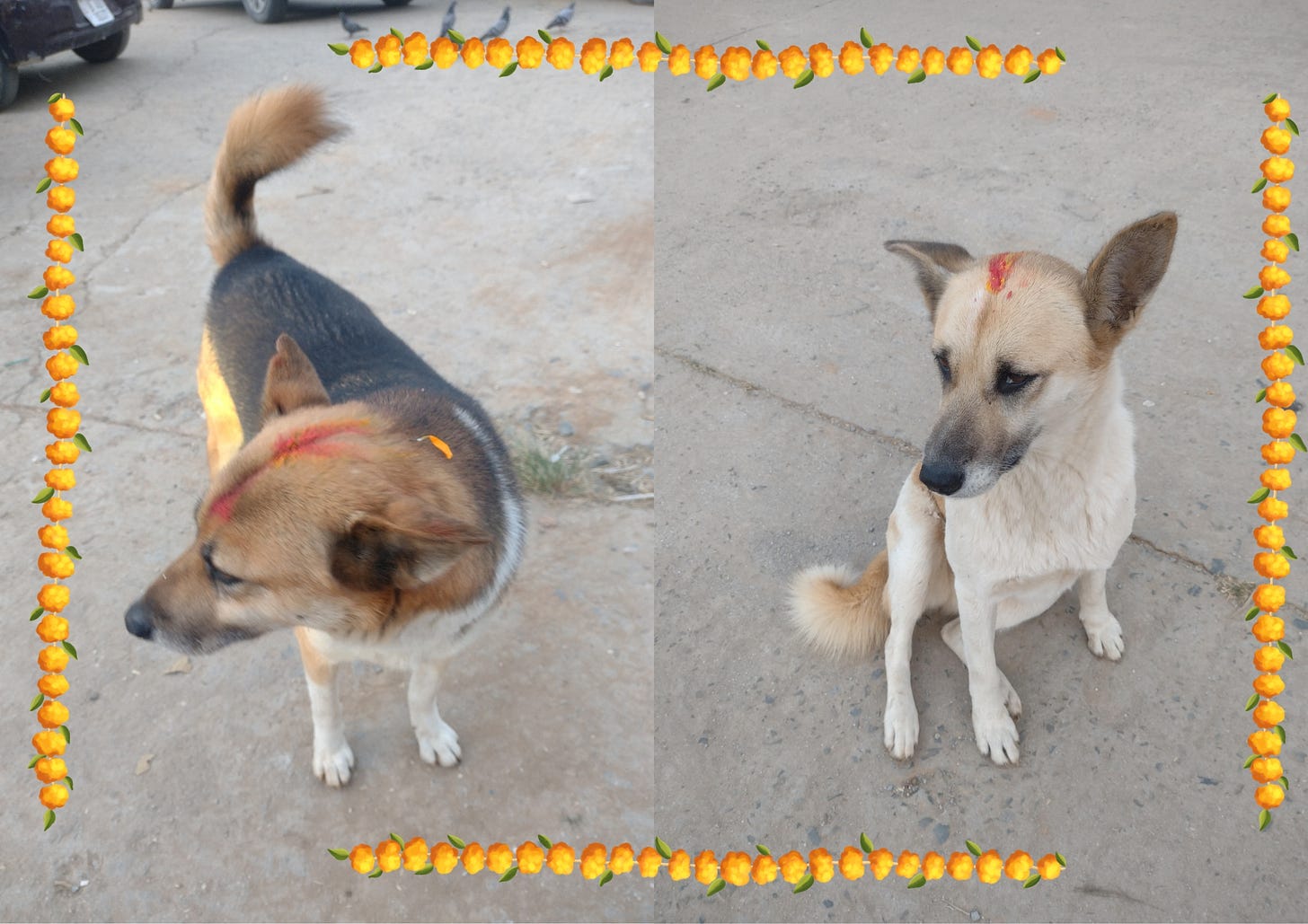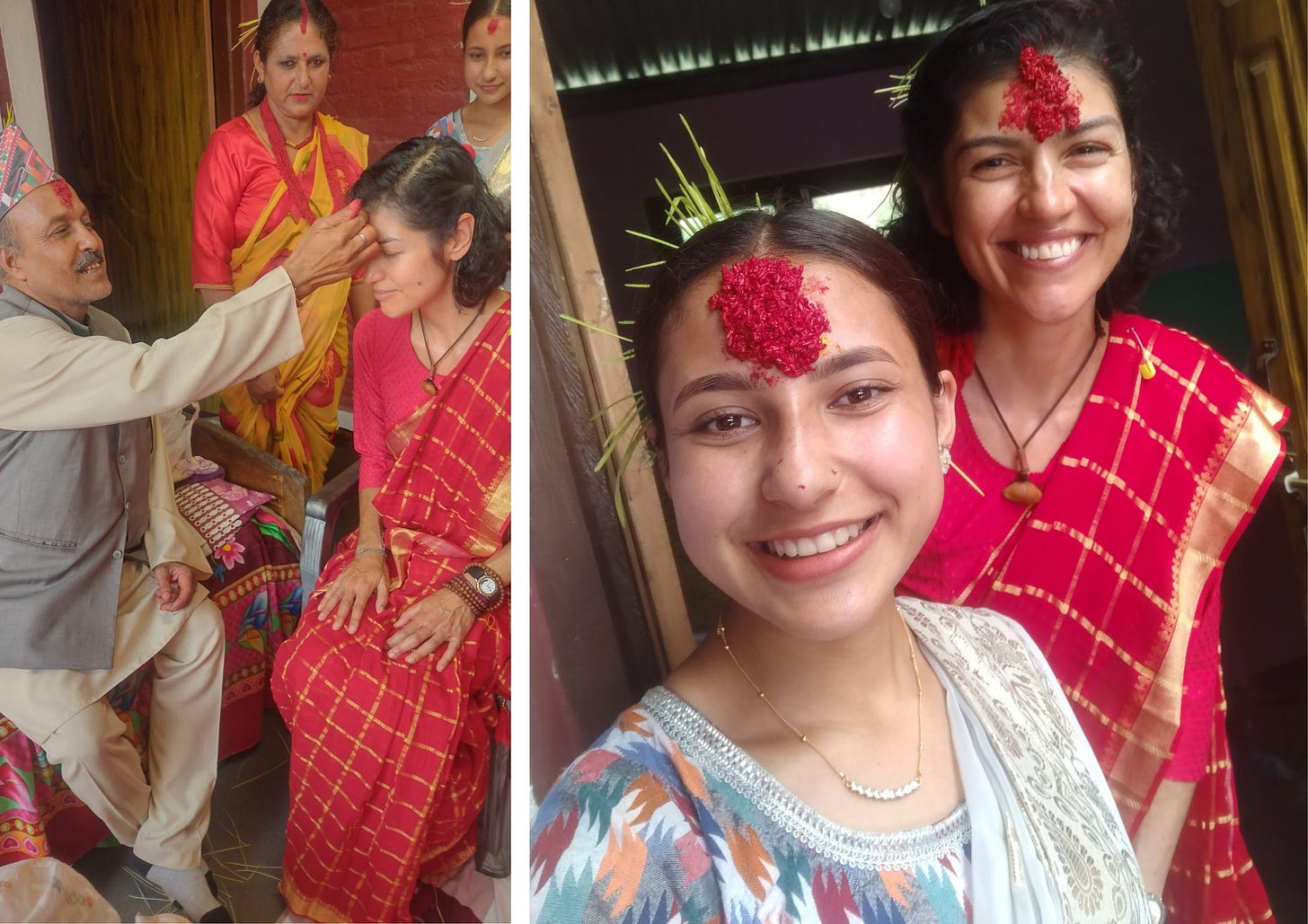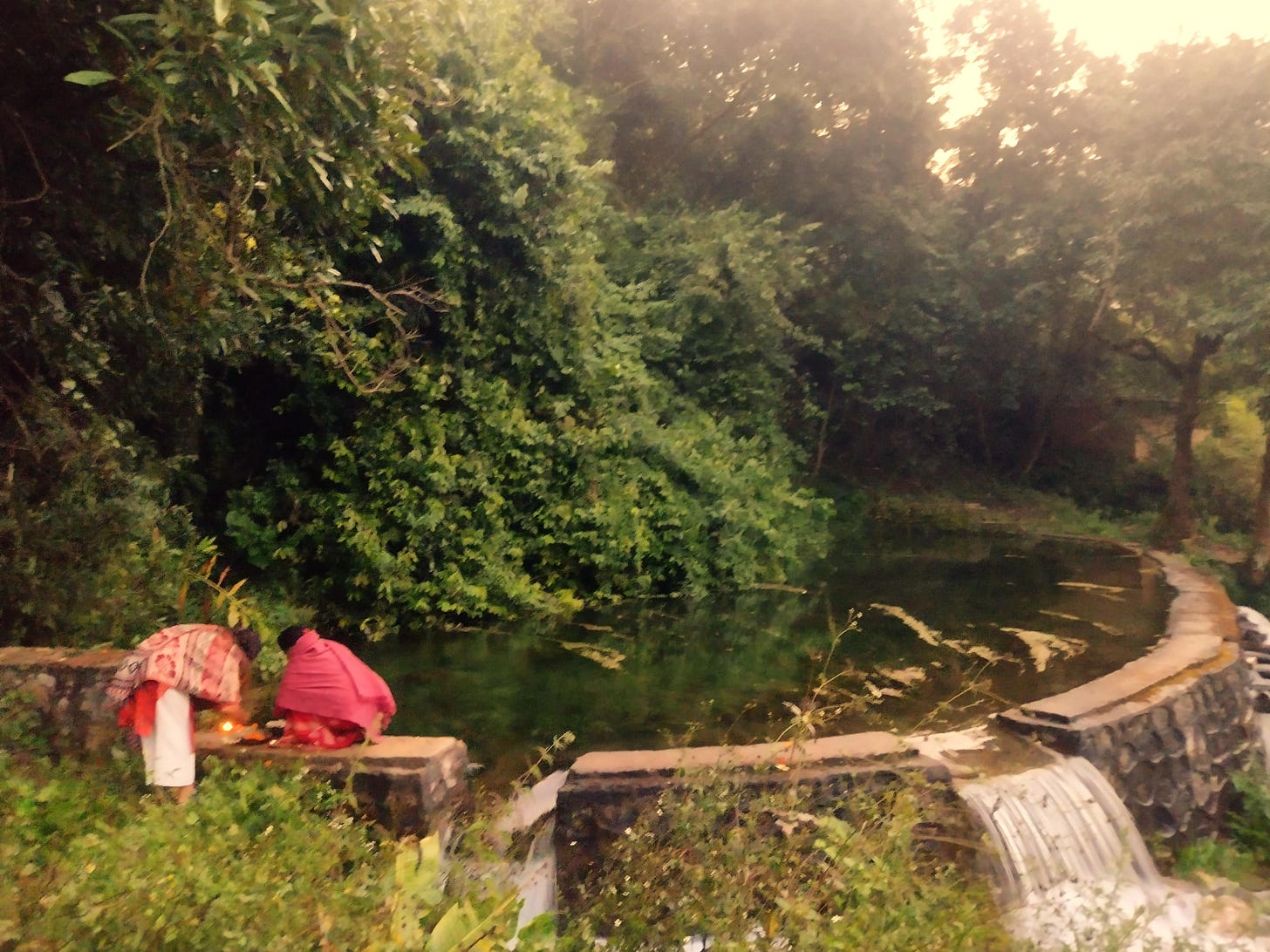The first time I left Brazil I was 26 years old. I went as a journalist to accompany a cruise in Patagonia, between Chile and Argentina. In ten days crossing icy waters, I got to see penguins, sea lions and fascinating glaciers up close, while all I could think about was “Titanic” and whether there was enough room for Leonardo DiCaprio in that doorway...
This experience ignited my desire to go out into the world, and I began to put my backpack on whenever I had the chance. I started with my neighbors in South America and, as the budget allowed, expanded to the USA and Europe. Despite my curiosity about other cultures, I traveled within a certain bubble of predictability.
One of my safety rules was to have a McDonald's as a lifeline in case the local food was too out of my taste range - and I was outraged to discover that Bolivia, my first solo destination, didn't have a branch of the chain. This is just one of the shameful aspects of my youth, but I'll stop here so as not to lose friendships.
A year ago, when I decided to live in India, fortunately my conscience had changed as much as my palate (one of the advantages of age, to compensate for the pain in my knees). I knew I was going to experience a totally different universe, and I chose to try to pass through whatever came my way as openly as possible.
And so, I got used to food that was spicy enough to clear my airways (good to have a handkerchief nearby), bucket baths with cold water in which I took the opportunity to wash my clothes, and the discovery that you can live without toilet paper (but a bottle of alcohol gel in my handbag still warms my heart).
Throughout my time in Asia, I deconstructed various concepts about what was “normal” or “correct”, understanding that a lot is just a matter of perspective and habit. Anyone from here could look at my daily life in Brazil with the same strangeness with which I arrived on this continent - the facial expression they make when I comment naturally about my divorce is proof of this (how can you end a marriage in a culture whose celebration lasts at least three days, with food to feed a village and which may involve the participation of a decorated elephant?). Does it make sense to expect 8 billion people spread across this diverse planet to think and act exactly the same?
It was here in Nepal that I felt this elasticity of soul gained more ground. In the two months I spent in Kathmandu, I lived in a vortex where airplane noises, car horns, children playing outside, dogs barking, street vendors, the Bollywood dance music of the restaurant next door, the crusher of a construction site that had no day or time to happen coexisted... Going out on the street was a great practice for mindfulness, on narrow, bumpy sidewalks full of students, tourists, beggars, monks, dogs, families with children and huge bags. The absence of traffic lights made crossing to the other side an exercise in faith, self-confidence and a pinch of detachment from matter.
Given my history of short patience, I could have gone straight to a psychiatric ward. But, unbelievably, I felt happy and at peace, and even managed to laugh about it. All that talk about finding inner silence made perfect sense when there was no possibility of finding it anywhere else. And perhaps because of this whirlwind happening around me, a natural desire to silence and internalize grew up. This helped me to bring more awareness to everyday life, without letting it affect me so much - and, best of all, without damage the ball of the children who knocked on the gate to retrieve it up to three times a day.
During a conversation, my mother said: “That sounds like this is the place you've enjoyed the most so far, doesn't it?”. I was surprised and asked why. And she said: “because you're not complaining like always”. Ah, the family, that entity that rubs the standards you don't want to see in your face. And then it hit me: time on the road has given me this possibility of transformation - although sometimes I still grumble more than is advisable.
The fact that I'm constantly changing addresses makes it easier to experience the idea of impermanence, whether in its negative or positive aspects - what bothers me doesn't seem so unbearable anymore, and what's good, I take advantage knowing that it will soon be over.
A month ago I came to Dakshinkali, a small village an hour from Kathmandu, where your eyes rest on the mountains and your ears on the birdsong. I stayed with a Nepalese family who are pure love even in mime, when verbal language is not enough. I was lucky enough to stay with them during two important Hindu holidays, Dashain and Tihar (the first lasts 15 days, the second five - and we thought Carnival in Brazil was a big deal). Although we found monks on every street corner, most of the country's population is Hindu and celebrations take place everywhere.
My hosts were kind enough to include me in the celebrations - once again I heard that saying I've known in India “here the guest is a god”, and again I replied “but don't you already have dozens of deities to deal with?!”. For a goddess, I was dressed rather shabbily, and the women quickly wrapped me in a sari to make me look a little more worthy of the title. I asked endless questions about the different meanings of these festivities, but I didn't have the ability to absorb everything.
At Dashain, I understood that the elders blessed the youngest members of the family, then it went the other way around, always putting tika on their foreheads - a red paste made with rice and colored pigment. Depending on the size of the gathering, your forehead could get a bit bogged down, and eventually your tika would fall off like freshly applied plaster on the wall (I guess that's why women like red clothes so much, all I could think about was how to get the stains out). What's more, they'd shower you with flower petals and hand you an envelope with money in it. I, who have never identified with Christmas, quickly took stock:
Christian holiday - stress at the crowded mall spending what you don't have, supper with turkey, family dramas, Roberto Carlos special on TV [a famous Brazilian singer who has been performing on Christmas Eve for 50 years]
Hindu holiday: being idolized, earning money, vegetarian food, relatives who don't speak my language to criticize me, songs with playful dances.
I'm sorry Jesus, but with all due respect, this competition it's hard for you.
In Tihar, the houses are filled with lights, with footprints drawn on the floor, symbolizing the path of the goddess of prosperity Lakshmi to the entrance (something of an Easter bunny vibe), and a kind of mandala with coloured pigments called rangoli (whose name made me think of an Italian pasta). Each day there was an animal to worship: crows, dogs and cows.
One morning, around 5am, I had barely woken up and the owner of the house said “puja”. I thought it was the ceremony she did every day right here in the garden, so I went out after her almost in my pajamas. But she kept walking through the village, and I followed a little dizzy. Until we came to a water fountain where other women were saying their prayers and pouring out offerings. Next door was a neighboring monastery building, with little monks rushing off to their 6am Buddhist puja. A woman was taking advantage of the fountain to wash her bed linen. Then a man came in to brush his teeth. The sun was rising and my brain was barely processing so much information.
On the way back, we stopped to worship the street dogs, putting on tika, throwing flowers and giving them food. People left money on the ground next to them, and we used it to provide a canine breakfast with lots of cookies.
In the evening, we did a puja for Lakshmi, offering incense, fruit, candles and money on an altar, and went out for the most embarrassing part of the celebrations... to pass by the neighboring houses singing a typical song, the lyrics of which I obviously didn't understand a syllable, but I repeated them anyway and had a great time. In the end, the neighbors came to bring us money, sweets or fruit - contrary to my expectations that they would call the police or release the dogs. I've done a lot of shameful things in my life, but few of them with a clean face. We returned home with our pockets full (thanks, Lakshmi!) and stuffed ourselves with curry, lentils, rice, paneer (a typical cheese) and lots of sweets that included the diabolical combo of fried food + sugar. How can you not love this culture?
On the last day, there was also a celebration for the siblings, in which a tika was placed in the colors of the rainbow. The brothers received sweets and the sisters won money - the younger ones updated the envelope version for online transfer, giving the tradition a modern twist. In addition, garlands of flowers were placed around the neck, one of which, purple, called Makhamali, is known to last for months - the texture even looked like plastic, I almost didn't believe it was natural, symbolizing long life. And more eating to round off the feast.
Nepal was like an arranged marriage that worked. I arrived here without knowing anything, just to wait for my new visa to India. And I fell in love with the country every day, in silence or in noise, in Buddhism or Hinduism, in spicy or sugary food, in the city or in the countryside, always with loving, fun and generous people.
On Wednesday 13th, I'm heading back to India for another season, carrying this new love in my heart, in an exercise in geopolitical non-monogamy. And do you know the best thing? Not only is there no McDonald's here, but I've made friendship with a nun who's never heard of it - in fact, I even showed her photos to make sure. I prepared lunch for her at my hosts' house and my food was praised. At least this youthful karma is paid off. God, deliver us from fast food at this point in our lives!
PS: If you haven't read the Holy Shift debut text, go to the website and check it out:
The cloth doesn't make the monk, but it adds a touch of charm
No one ever prepared me for living with monks. By the time I realized it, they were already part of my daily life. So I had to learn the rules of etiquette of this dynamic, through trial and error - and there were many: from sweeping dirt over the head of someone downstairs, to splashing water from the sink on another while washing dishes. I've lost cou…









